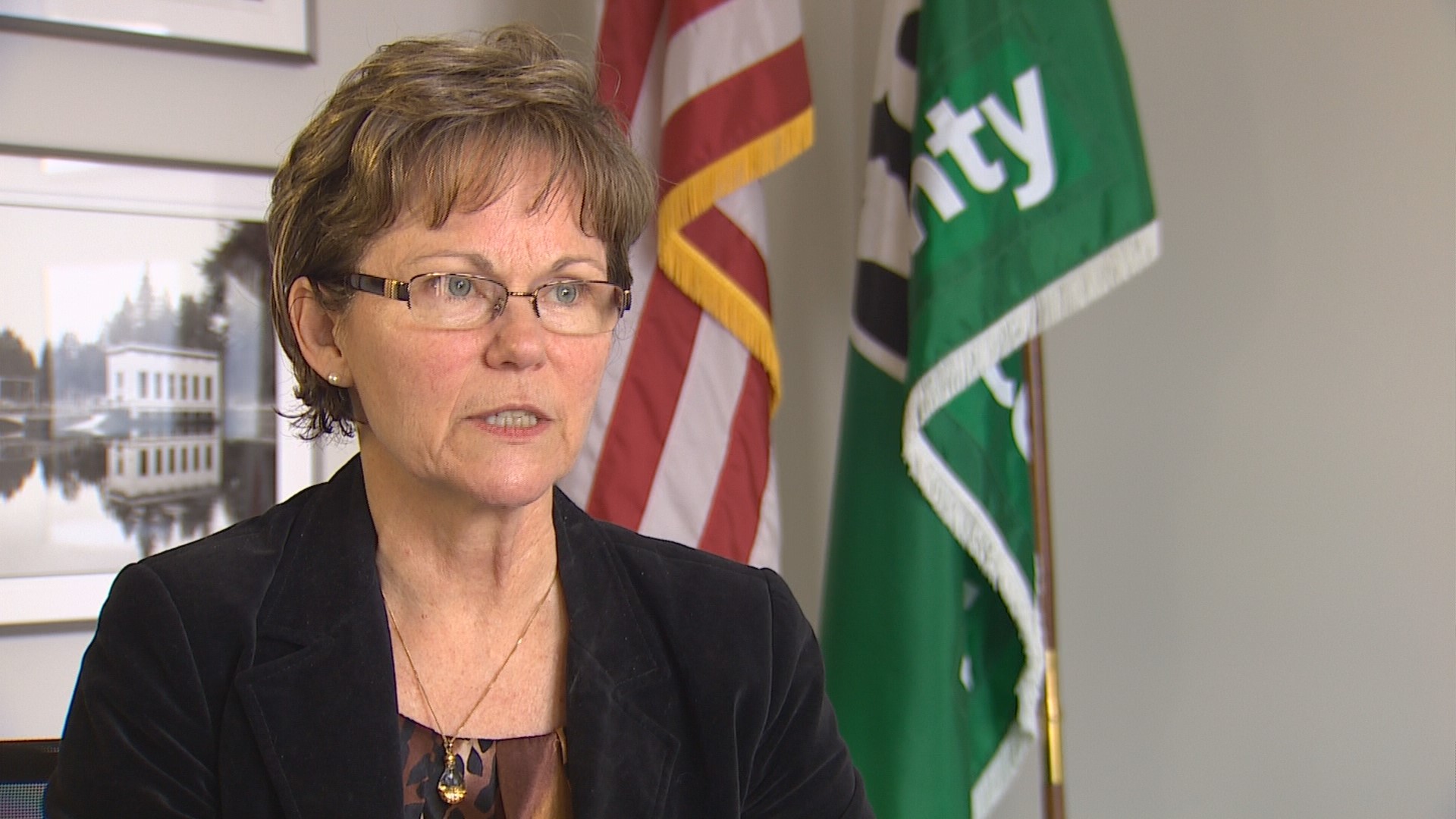Gun safety and school security will be at the forefront again tomorrow, as the March for Our Lives event unfolds across the country.
It is the follow-up to a series of student-led walkouts last week.
Many elected officials in Seattle and King County have supported the demonstrations. But three council members in King County rejected a non-binding motion to support the march: Kathy Lambert, Pete von Reichbauer, and Reagan Dunn. All three are Republicans. The six Democrats on the council voted yes.
Lambert, a former school teacher, explained her opposition on Friday. "I found the poison pill in that (legislation)," says Lambert, who says her main issue was language supporting a change in state laws, to allow for local jurisdictions to make alterations to the gun laws.
"We do need to keep a standard law in the state," says Lambert, who also believes the issue is more complex. Lambert says her rural district is having a harder time finding land to build new schools, and it has made her look at how construction can impact safety.
"Our decision on forcing these schools to be more compact and taller - is not a good idea," says the longtime Council member, who continues, "if there was an active shooter would you want to be one of those students, or one of those teachers coming down the staircase and everybody knowing
that people coming down from the 2nd, 3rd, and 4th floor are going to be coming down that staircase? I think heaven forbid we have an active shooter in this area - I want to make sure that the codes are not setting up an unsafe school environment. And as a former teacher it is really scary to me that we are creating this situation."
It was immediately unclear which districts have established codes or regulations for new construction. The State started a mapping program in 2003, to chart every school in the wake of the Columbine High School shooting.
Seattle Education Association President Phyllis Campano said she knew of no individual mandate, but believed "We should build schools, first, for education."
The WEA said in a statement Friday, "The Washington Education Association believes that students and staff at all schools in Washington deserve to have school emergency plans in place that reflect current recommendations and best practices identified by federal, state, and local emergency management, law enforcement, fire response, and emergency medical services organizations.
The Association also believes that school districts should work cooperatively with these emergency organizations to develop, implement, train, and cross-train on these plans.
The Association further believes that school districts should be encouraged to individualize procedures for specific buildings to reflect local hazard assessments and to recognize the implications of age-related capabilities and challenges of students at pre-K, elementary, middle, secondary, and post-secondary programs and facilities."
There has been pushback to Lambert's claims, including on social media. After her comments about the March went public on Monday, some pointed out that staircases don't kill people. Lambert responded, "I think it's easy to blame it on one thing or the other and I don't think that's appropriate. I think you really have to look at all the factors and say how can we do all the factors ---
to make kids safe, to choose one or the other is not appropriate."


